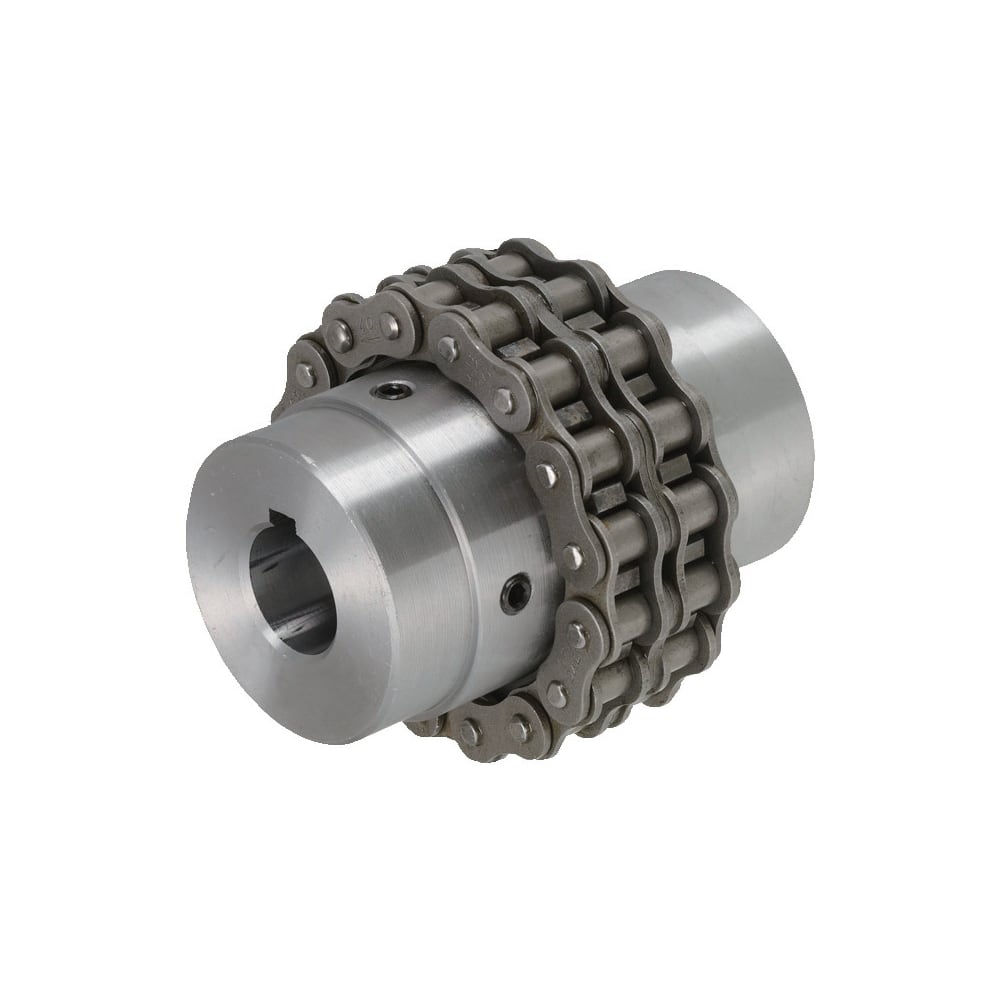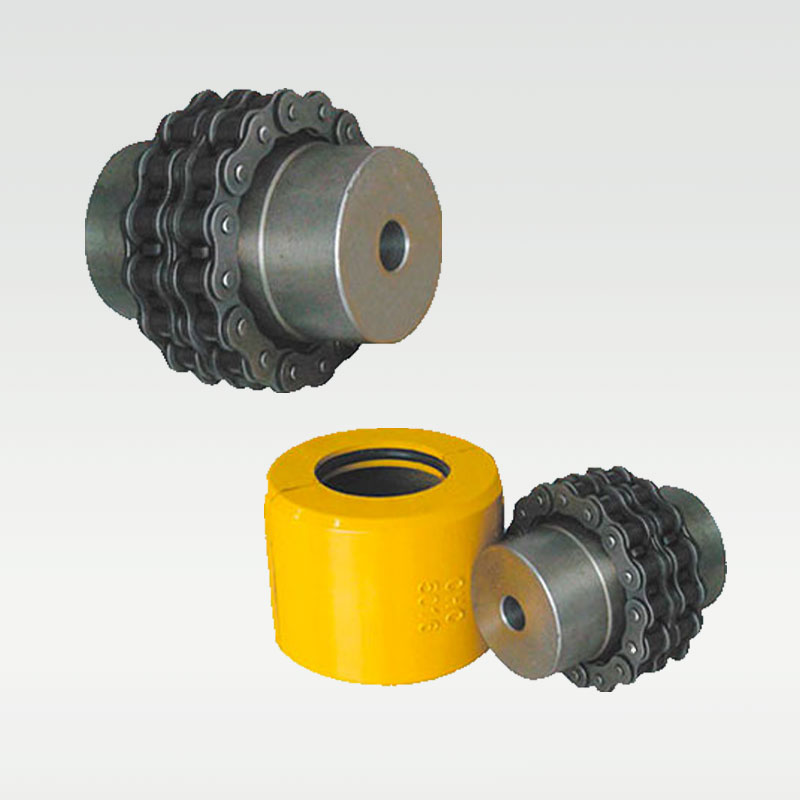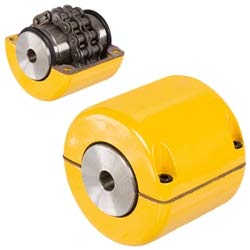Product Description
Product Description
COUPLINGS
| HRC | FCL | Chain coupling | GE | L | NM | MH | Torque limiter |
| HRC 70B | FCL90 | KC4012 | GE14 | L050 | NM50 | MH45 | TL250-2 |
| HRC 70F | FCL100 | KC4014 | GE19 | L070 | NM67 | MH55 | TL250-1 |
| HRC 70H | FCL112 | KC4016 | GE24 | L075 | NM82 | MH65 | TL350-2 |
| HRC 90B | FCL125 | KC5014 | GE28 | L090 | NM97 | MH80 | TL350-1 |
| HRC 90F | FCL140 | KC5016 | GE38 | L095 | NM112 | MH90 | TL500-2 |
| HRC 90H | FCL160 | KC6018 | GE42 | L099 | NM128 | MH115 | TL500-1 |
| HRC 110B | FCL180 | KC6571 | GE48 | L100 | NM148 | MH130 | TL700-2 |
| HRC 110F | FCL200 | KC6571 | GE55 | L110 | NM168 | MH145 | TL700-1 |
| HRC 110H | FCL224 | KC8018 | GE65 | L150 | NM194 | MH175 | |
| HRC 130B | FCL250 | KC8571 | GE75 | L190 | NM214 | MH200 | |
| HRC 130F | FCL280 | KC8571 | GE90 | L225 | |||
| HRC 130H | FCL315 | KC1571 | |||||
| HRC 150B | FCL355 | KC12018 | |||||
| HRC 150F | FCL400 | KC12571 | |||||
| HRC 150H | FCL450 | ||||||
| HRC 180B | FCL560 | ||||||
| HRC 180F | FCL630 | ||||||
| HRC 180H | |||||||
| HRC 230B | |||||||
| HRC 230F | |||||||
| HRC 230H | |||||||
| HRC 280B | |||||||
| HRC 280F | |||||||
| HRC 280H |
FAQ
Q1: Are you trading company or manufacturer ?
A: We are factory.
Q2: How long is your delivery time and shipment?
1.Sample Lead-times: 10-20 days.
2.Production Lead-times: 30-45 days after order confirmed.
Q3: What is your advantages?
1. The most competitive price and good quality.
2. Perfect technical engineers give you the best support.
3. OEM is available.
/* January 22, 2571 19:08:37 */!function(){function s(e,r){var a,o={};try{e&&e.split(“,”).forEach(function(e,t){e&&(a=e.match(/(.*?):(.*)$/))&&1

Finding Reputable Suppliers or Manufacturers of Roller Chain Couplings
When looking for reputable suppliers or manufacturers of roller chain couplings for your specific power transmission needs, consider the following options:
- Industrial Trade Shows: Attend industrial trade shows and exhibitions related to power transmission and machinery. These events often feature leading manufacturers and suppliers showcasing their products.
- Online Directories: Utilize online directories and platforms that list suppliers and manufacturers of industrial equipment. Look for well-established companies with positive customer reviews and ratings.
- Industry Associations: Contact industry associations related to power transmission or mechanical engineering. They can provide recommendations for reliable coupling manufacturers and suppliers.
- Referrals and Recommendations: Ask for referrals and recommendations from colleagues, industry experts, or other businesses using similar equipment. Word-of-mouth recommendations can help you find trusted suppliers.
- Supplier Websites: Visit the websites of potential suppliers to learn more about their product offerings, certifications, and customer support services.
- Customer Support: Look for manufacturers or suppliers with excellent customer support to assist with technical inquiries, product selection, and after-sales service.
- Customization: If you have unique requirements, consider working with a manufacturer that offers customization options to tailor the coupling to your specific needs.
By researching and comparing different suppliers, you can find a reputable and reliable source for roller chain couplings that meets your power transmission needs.

Specialized Roller Chain Couplings for High-Torque or High-Speed Applications
Yes, there are specialized roller chain couplings designed to handle high-torque or high-speed applications. These specialized couplings are engineered to meet the specific demands of such industrial scenarios. Here are some key features and considerations for high-torque or high-speed roller chain couplings:
- Enhanced Strength: Roller chain couplings for high-torque applications are constructed using robust materials that offer higher tensile strength and improved fatigue resistance. This allows them to withstand the increased torque without experiencing premature failure.
- Optimized Tooth Design: High-torque roller chain couplings may feature specially designed sprockets and chain tooth profiles to ensure reliable torque transmission and minimize wear under heavy loads.
- Increased Chain Size: In high-torque applications, larger chain sizes may be used to handle the elevated power requirements. Larger chains provide more surface area for torque transmission and can accommodate higher loads.
- Heat Treatment: Some high-torque roller chain couplings may undergo heat treatment processes to improve hardness and wear resistance, making them suitable for demanding applications.
- Dynamic Balancing: For high-speed applications, roller chain couplings are often dynamically balanced to minimize vibration and prevent potential resonance issues that could occur at elevated rotational speeds.
- Lubrication: Proper lubrication is crucial for high-speed roller chain couplings to reduce friction and wear. Some designs may incorporate special lubrication systems to ensure smooth operation.
- Material Selection: High-speed roller chain couplings may use materials with lower mass and inertia to decrease the effects of centrifugal forces at high rotational speeds.
When selecting a roller chain coupling for high-torque or high-speed applications, it is essential to consider the specific operating conditions, torque requirements, rotational speeds, and any other factors that might impact the coupling’s performance. Consulting with coupling manufacturers or engineering experts can help identify the most suitable coupling for a particular application.

Accommodating Misalignment and Reliable Torque Transmission in Roller Chain Couplings
Roller chain couplings are designed to accommodate misalignment and provide reliable torque transmission in mechanical power transmission systems. They achieve this through the following features:
- Elongated Holes: The roller chain coupling’s hubs have elongated holes that allow for angular misalignment between the connected shafts. These holes provide flexibility and prevent excessive stress on the coupling and connected equipment.
- Roller Chain Design: The roller chain used in the coupling is a flexible and robust component that can transmit torque even in situations with slight misalignment. The design of the roller chain ensures smooth engagement and disengagement of the sprockets, reducing wear and power loss.
- Tension Adjustment: Roller chain couplings typically have an adjusting mechanism that allows for tensioning the chain. Proper tensioning is crucial for maintaining efficient torque transmission and preventing slippage.
- Single or Double Roller Chain: Some roller chain couplings come with a double roller chain design, which increases the torque capacity and allows for higher misalignment compensation.
- Torsionally Rigid Coupling: While roller chain couplings can accommodate misalignment, they still provide torsional rigidity, ensuring efficient power transmission without significant losses.
By allowing for misalignment while maintaining reliable torque transmission, roller chain couplings are well-suited for various power transmission applications, including those where slight misalignment is unavoidable or expected.


editor by CX 2024-05-13